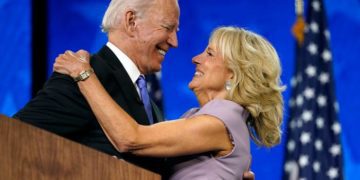[ad_1]
The rule makes it more difficult for immigrants to obtain legal status if they use public benefits such as Medicaid, food stamps and housing vouchers.
Earlier in the term, a 5-4 court said the rule could go into effect nationwide while legal challenges played out, but the states had asked the justices to reconsider that decision given the implications of the virus.
The court denied the request with no noted dissents but indicated the states could ask district court for further relief. New York Attorney General Letitia James on Friday confirmed that she would be asking the US District Court for the Southern District of New York to halt implementation of the rule.
New York, Connecticut, Vermont and New York City had asked the justices to block the rule nationwide, arguing that while they are trying to stop the spread of coronavirus, the government’s rule is deterring some immigrants from accessing health care and public benefits that are “essential tools for protecting the public at large” by limiting the “spread and severity” of the virus.
“Such narrow and temporary relief” is warranted, James argued.
In the petition, James provided examples of the impact of the rule on immigrants. “A physician in Connecticut has spoken with patients who had symptoms consistent with Covid-19,” James wrote, “but were afraid to obtain Covid-19 testing or seek treatment due to concerns about the Public Charge Rule and fears that they could not afford to pay for treatment.”
She said the unwillingness for immigrants to come forward jeopardized their safety but also the public at large.
“Immigrants who lack testing and treatment are also more likely to spread the virus to other people inadvertently, contributing to the current exponential growth of infection rates and fatalities,” she said.
A county in Illinois and immigrant rights groups in the state also asked the Supreme Court to reconsider its decision. The two cases had been on separate tracks.
In court papers, the Trump administration told the justices to reject the request in the New York case. Government lawyers argued that after the President declared a state of emergency the administration issued guidance that took “targeted steps” to address the issue.



















